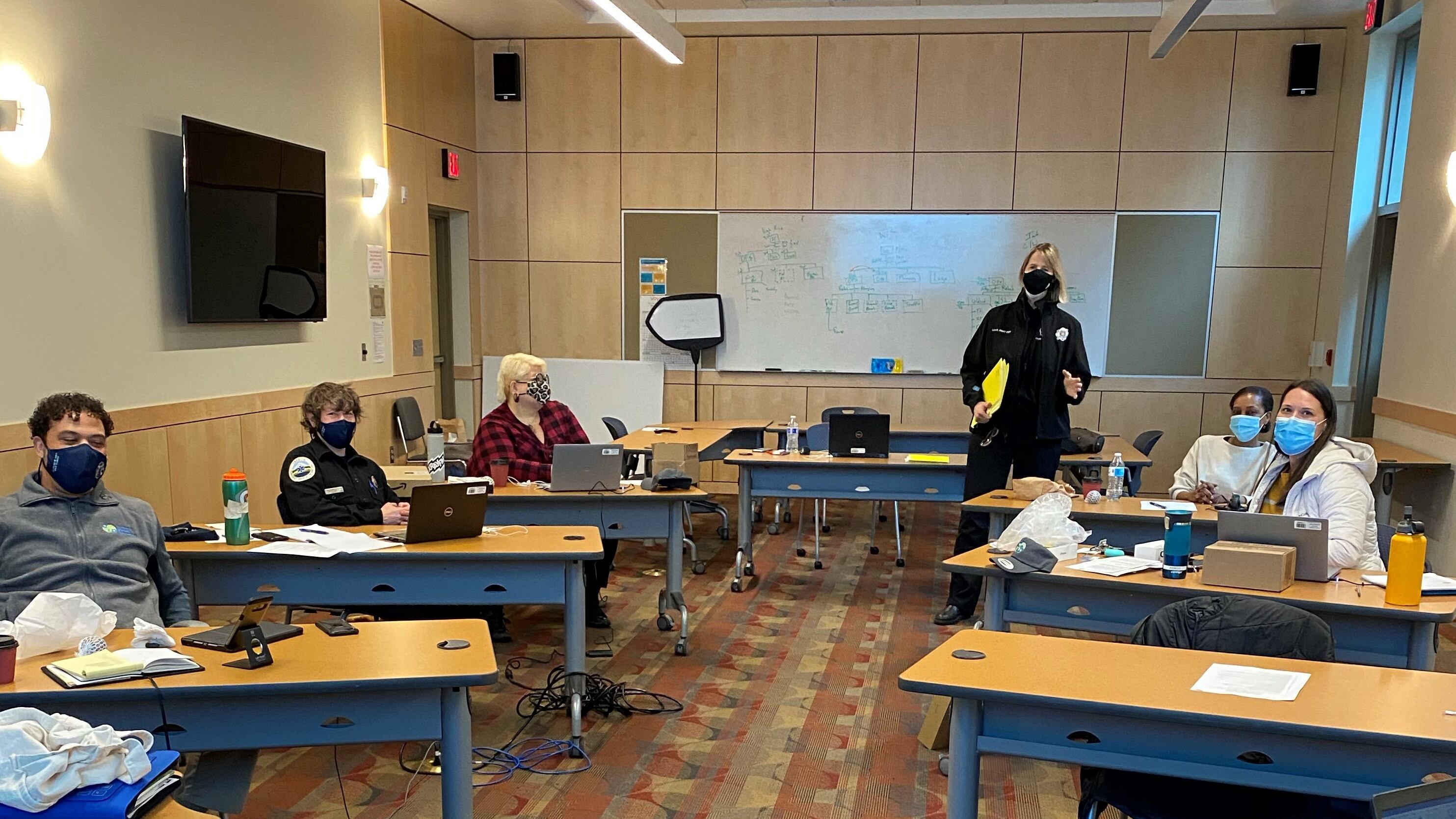Portland Fire & Rescue began formal training today of the four-member team that will inaugurate Portland Street Response next month in Lents.
City officials have long sought an alternative to sending sworn police officers or firefighters to every 911 call. In recent years, those calls have increasingly resulted from people experiencing mental illness or homelessness, or simply being in the wrong place at the wrong time.
Portland Street Response will start with two community health workers, a mental health clinician and a firefighter/EMT. The idea is that 911 operators will dispatch Street Response to calls of lower acuity that do not involve an allegation that a crime is being committed.
Portland got the idea from Eugene, where a nonprofit called Crisis Assistance Helping Out on the Streets, or CAHOOTS, has operated for 30 years. In 2019, it handled about 24,000 calls and only requested police backup about 150 times.
Portland's program will be different—it will be staffed by city employees rather than nonprofit workers, for instance—but the goal is the same: to provide an appropriate response and, ideally, to avoid some of the bad outcomes, including police shootings, that disproportionately involve people suffering mental health crises.
The Portland City Council approved funding for Portland Street Response in the fall of 2019 but struggled pulling the program together, in part because unions for police and firefighters raised objections.
Now, according to the fire bureau, the new staff of Portland Street Response will complete "mental health first aid classes," conduct crisis deescalation and scene safety and suicidality and risk assessment, establish radio and dispatch protocols, and meet with CAHOOTS team members.
Commissioner Jo Ann Hardesty, who has been the biggest backer of the new program, says she's exhilarated to see it begin. "After years of working with the community to come up with a better solution to assist people who need help instead of handcuffs, executing on this promise is one of most exciting moments of my time in City Hall," Hardesty said in a statement. "This project is a marathon, not a sprint, and I thank everyone for their patience while we build something from the ground up."

